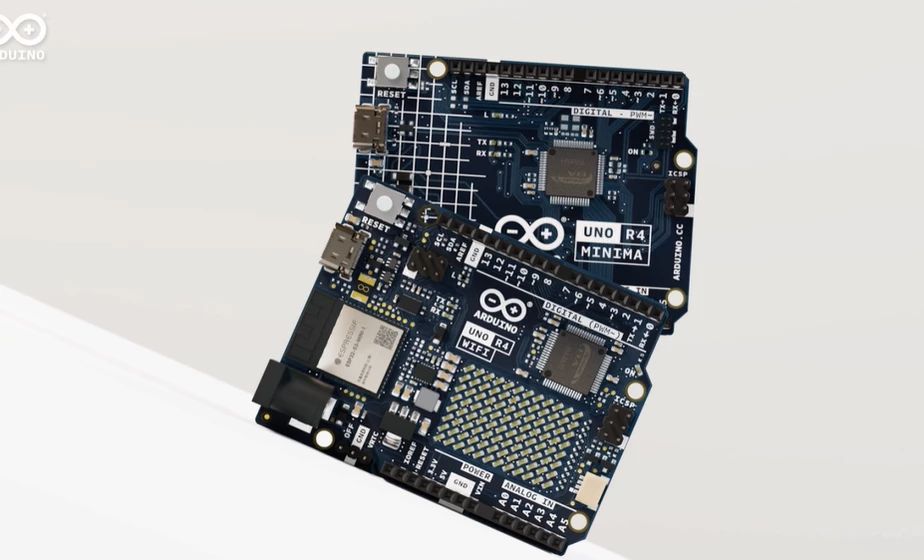



Arduino UNO R4 WiFi Development Board
Introduction
The new Arduino UNO R4 development board comes in two versions: the UNO R4 WiFi and the UNO R4 Minima. It runs on the Renesas RA4M1 (Arm Cortex®-M4) processor with a clock speed of 48MHz, which provides a 3x increase over the UNO R3. In addition to that, the SRAM has been upgraded from 2kB to 32kB and the flash memory has been increased from 32kB to 256kB to accommodate to more complex projects. Furthermore, in response to requests from the Arduino community, the USB port has been upgraded to USB-C and the maximum power supply voltage has been increased to 24V. The board provides a CAN bus, allowing users to minimize wiring and perform different tasks by connecting multiple extension boards. Finally, the new board also includes a 12-bit analog DAC.
The WiFi version comes with an Espressif S3 WiFi module, expanding creative opportunities for makers, educators, and hobbyists alike.
Based on the success of UNO R3, the UNO R4 board is the ideal prototype and learning tool for anyone. While retaining the well-known features of the UNO series, such as standard form factor, shield compatibility, 5V voltage, and robustness, new features have been added.
Thanks to its powerful design and reliable performance, the UNO R4 is a valuable addition to the Arduino ecosystem, suitable for beginners and experienced electronics enthusiasts alike to deploy their own projects.

Figure: Board Overview
Features
The UNO R4 WiFi maintains the same form factor, pinout, and 5 V operating voltage as its predecessor, the UNO R3, ensuring a seamless transition for existing shields and projects.
The UNO R4 WiFi boasts increased memory and a faster clock speed, enabling more precise calculations and effortless handling of complex projects.
The UNO R4 WiFi introduces a range of on-board peripherals, including a 12-bit DAC, CAN BUS, and OP AMP, providing expanded capabilities and design flexibility.
The UNO R4 WiFi supports a wider input voltage range, allowing seamless integration with motors, LED strips, and other actuators using a single power source.
With built-in HID support, the UNO R4 WiFi can simulate a mouse or keyboard when connected to a computer via USB, making it easy to send keystrokes and mouse movements.
The UNO R4 WiFi hosts an ESP32-S3 module, enabling makers to add wireless connectivity to their projects. Combined with the Arduino IoT Cloud, makers can monitor and control their projects remotely.
The UNO R4 WiFi features a Qwiic I2C connector, allowing easy connection to nodes from the extensive QWIIC ecosystem. Adapter cables also enable compatibility with sensors and actuators based on other connectors.
The UNO R4 WiFi includes additional pins, including an "OFF" pin to turn off the board and a "VRTC" pin to keep the internal Real-Time Clock powered and running.
The UNO R4 WiFi incorporates a bright 12x8 red LED matrix, ideal for creative projects with animations or plotting sensor data, eliminating the need for additional hardware.
The UNO R4 WiFi includes an error-catching mechanism that detects runtime crashes and provides detailed explanations and hints about the code line causing the crash.
Specification
Qwiic connector
OFF pin
VRTC pin










